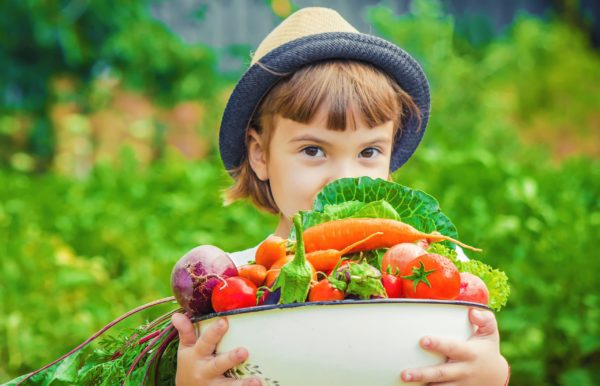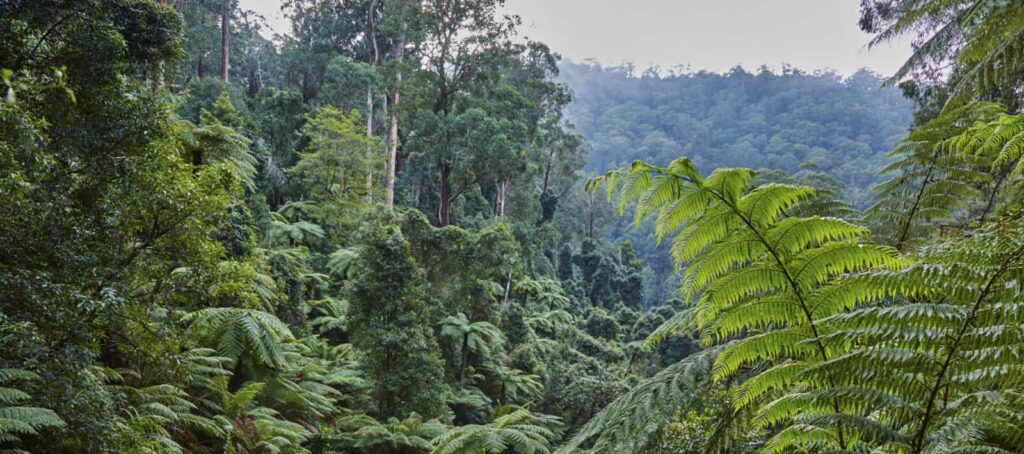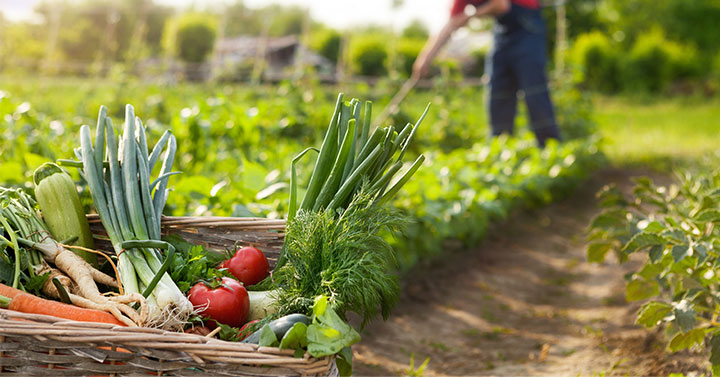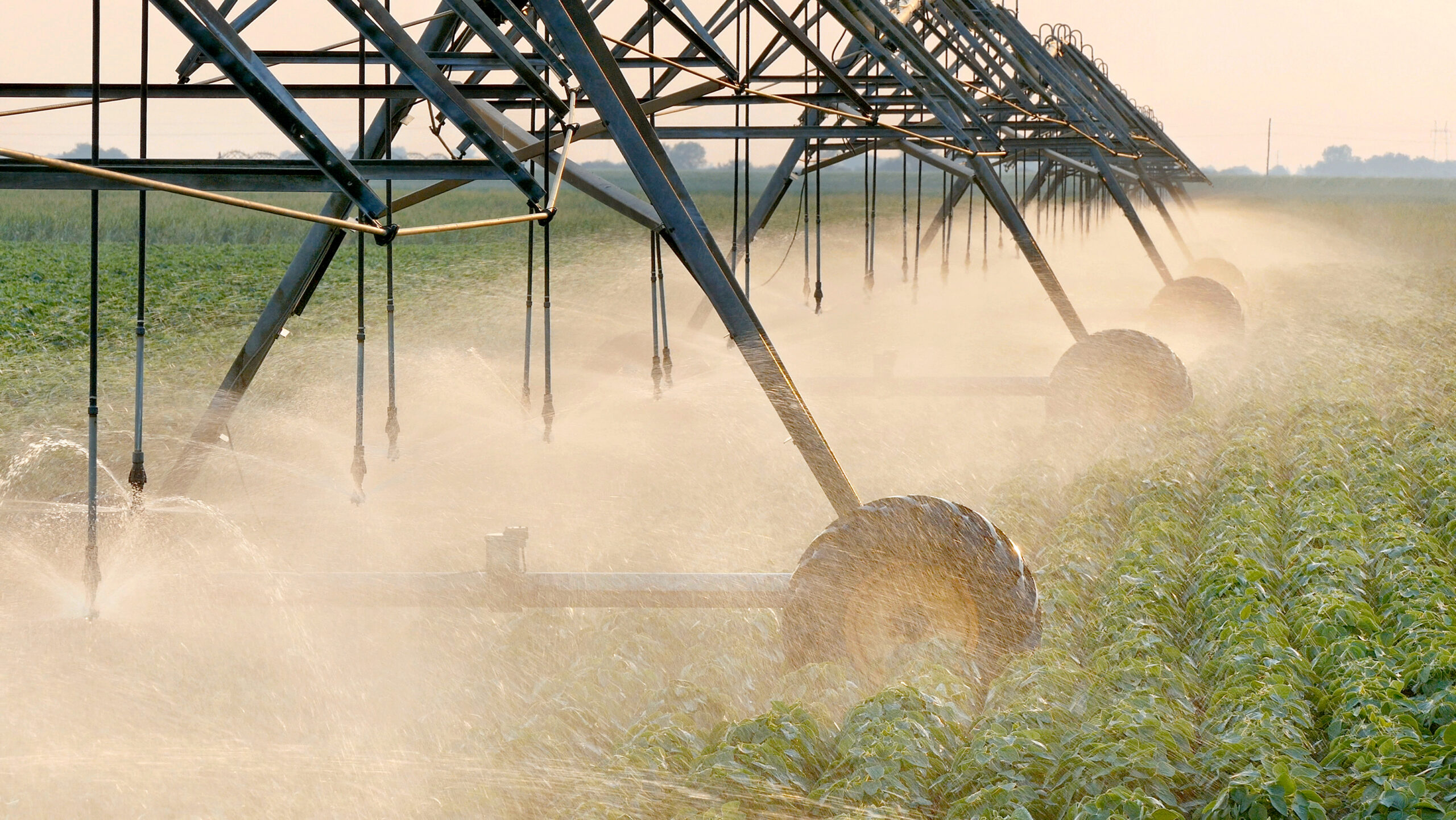
Article


At a time when climate experts are warning that our environment is rapidly approaching a tipping point and calling for urgent action, more caring people than ever are considering their individual eco-footprint and looking for ways to reduce their impact.
Quick poll! Have you ever:
If you’re someone who cares about securing a sustainable future for our planet, chances are you’re guilty rightfully proud of at least a few of these eco-conscious habits — and you’re not alone.
The interesting thing is, many of the go-to household and lifestyle changes people tend to make first in an effort to tread more lightly on the planet actually pale in comparison to the one most powerful thing we can do to make a difference as individuals — and that’s change the food that we eat.

Studies have shown that our diet is one of the largest contributors to our individual eco-footprint. But the standard Western diet (typical of developed countries like Australia), which depends largely on factory farming to meet the demand for meat, dairy, and eggs, is far more resource-intensive, energy-intensive, and environmentally destructive than a plant-based diet.
In fact, according to University of Oxford research, choosing to switch from animal products to more sustainable vegan food is “the single biggest way” we can help protect the environment, with the potential to shrink our impact by a massive 73%!
Huge, right? That’s the bigger picture — now, let’s break it down.
Read on to discover the 4 main reasons experts agree that going plant-based could be key to saving the planet.
The meat and dairy industries eat up a lot of land. Like … a lot.
Around one-third of Earth’s entire landmass is dedicated solely to raising animals for human consumption, and global land use surveys consistently reveal that the animal agriculture industry is responsible for the vast majority of all land clearing and deforestation around the world.
A staggering 60% of biodiversity loss worldwide — not just animals but plants, too — is due to the meat and dairy industry razing huge swathes of forested land to make room to graze farmed animals, and to grow crops specifically to feed them.

The writing is well and truly on the wall for our forests and wildlife: We must act urgently to curb land clearing, and this is where plant-based food comes in.
As it stands, a huge proportion of our global plant crop harvest is grown specifically to feed the billions of farmed animals raised and slaughtered every year … but these animals actually consume significantly more protein throughout their lifetime than their bodies ever produce overall.
Funnelling huge amounts of plant protein through animals to produce a lesser amount of protein via their meat or dairy is therefore extremely inefficient, and uses vastly more land than if we were to simply grow and consume these plant-based foods directly.
For example, it takes about 100 times more land to produce a gram of protein from beef or lamb than it does to produce a gram of protein from a plant-based source like tofu or peas.
And the same goes for milk! Producing just one glass of cow’s milk requires 10 times more land than it does to produce a glass of oat milk (and vastly more than other plant-based milks too).

To put that all in perspective, studies have found that if the world shifted towards a vegan diet, global farmland use could be reduced by more than 75%, deforestation could decline by up to 94%, and, importantly, we would still be able to grow enough nourishing plant-based food to keep up with the demands of our planet’s growing population.
Access to clean, fresh, drinking water is a must for the survival of all species, including our own — but it can be easy to forget that, like land, water is a finite and ever-dwindling resource.
If we consume and pollute water faster than it can naturally replenish, we risk causing long periods of drought and global water shortages by disrupting the water cycle, with the UN projecting that at our current rate, we could run out of fresh water as soon as 2050.
So why are experts urging consumers to choose more plant-based foods in order to combat the water problem?
Most tips for saving water focus on household use (think: not watering the garden, or taking shorter showers), but the reality is that 90% of all water ‘used’ by the average Australian household is actually embedded in the production of the food we eat. Our use of water around the home is just a drop in the ocean in comparison!
Animal products in particular place massive strain on our freshwater supply and severely compromise our water security — in short, because meat, dairy, and eggs require a LOT of water to produce.
Growing plant-based food uses water too, of course, but consuming plant foods directly still requires vastly less water than consuming them ‘secondarily’ by funnelling them through animals first.
In fact, 1kg of animal protein requires around 100 times more water to produce than 1kg of plant-based protein!

Renowned water scientist, Professor John Antony Allen, hails plant-based diets as “the magic demand management thing that could be done for global water security”. Other leading experts agree, and the stats are compelling:
Simply by turning off the tap of our demand for animal products and switching to plant-based foods instead, we can reduce our individual water footprints by a whopping 55%, which would help conserve fresh, clean drinking water for generations to come.
Usually, when we talk about emissions, it’s in the context of the fossil fuel industry (cue obligatory grumble), but studies have shown that even if all greenhouse gas emissions from fossil fuels stopped immediately, it would still be a huge challenge to mitigate climate change without a global shift towards plant-based diets.
This is because animal agriculture not only eats away at a massive proportion of our natural resources like land and water, it also generates harmful greenhouse gases every step along the way — including but not limited to those released during land clearing, and those associated with the immense amount of waste and pollution farmed animals produce throughout their lifetimes.
Animal products, both meat and dairy, in general require more resources and cause higher emissions than plant-based alternatives.
– United Nations Environment Programme
One of the potent greenhouse gases animals naturally produce via their digestion and waste is methane, which is the second largest driver of climate change after carbon dioxide, and accounts for a whopping 30% of global heating since pre-industrial times.

When you consider the fact that a single cow, for example, produces about 120kg of methane each year, and that billions of animals are bred and raised for food every year in Australia alone — it’s little wonder that animal agriculture is considered one of our nation’s (and indeed the world’s) most environmentally damaging industries.
Overall, meat and dairy production account for approximately 14.5% of all global greenhouse gas emissions.
Animal products also require a huge amount of processing before they are suitable for human consumption, and thus rely heavily on energy from fossil fuels.
Brace yourself for a truly wild statistic: The amount of energy it takes to produce just 1kg of beef is about the amount of energy needed to power your fridge for two months.
Converting grass into (meat) is like converting coal to energy. It comes with an immense cost in emissions.
– Joseph Poore, The University of Oxford
In comparison, plant-based protein sources require significantly less processing and energy, and therefore generate fewer emissions overall.
Projections show that if the world were to shift from a standard Western diet towards a plant-based diet, we could reduce the food industry’s total greenhouse gas emissions by 70% by 2050, which could give us more time to end our reliance on fossil fuels, and be instrumental in mitigating climate change. Now that’s a breath of fresh air!
It’s not just our atmosphere that the animal agriculture industry pollutes — it’s our waterways, too. When phosphorus and nitrogen from animal waste enters the ocean, it causes a chemical reaction that creates vast areas of water where the oxygen levels are too low for anything except algae to survive. These areas are known as “dead zones”, and they’re as dire as they sound.

To make matters worse, the same greenhouse gas emissions that cause global warming also warm our oceans and catalyse a process that’s technically called ocean acidification … although it’s also sometimes referred to as climate change’s equally evil twin, and honestly that’s pretty apt.
Ocean acidification is yet another devastating consequence of carbon dioxide levels rising in the atmosphere — we just don’t hear as much about it, perhaps because its sinister effects are happening underwater and out of sight. Below the surface, though, ocean acidification is already taking a toll and drastically affecting our marine biodiversity, killing off entire reef ecosystems and making them inhospitable to the animals and aquatic plants that once called them home.
Every time we keep land and marine animals off our plates, we are choosing not to support the meat and dairy industry’s ongoing pollution and destabilisation of our oceans. And not only that — crucially, we are also giving these vulnerable ecosystems a much-needed chance to bounce back.

All this considered, it’s little wonder that even the United Nations has identified plant-based diets as “a major opportunity for mitigating and adapting to climate change” and urged governments around the world to adopt policies that will help reduce the global consumption of animal products.
Making sure we avoid resource-intensive and environmentally damaging plant-based foods (e.g. palm oil) can be part of this transition too, as well as opting for seasonal, locally grown produce, which has a much lower carbon footprint than produce imported from overseas.
And once you’re in the know, you can’t help but see every seemingly small meal choice for what it really is: a powerful opportunity to help reshape our broken food system and secure a sustainable future for our planet.
Every day, more and more people are informing themselves about the impact their food choices can have — and the demand for plant-based food is skyrocketing! If you’re keen to join the growing planet-friendly food movement, check out our FREE veg starter kit for heaps of delicious, nourishing recipe ideas and tips to get you started.

If you’ve enjoyed learning how eco-friendly eating plant-based can be, but want to visualise exactly what all your own food choices are adding up to, there’s an app for that!
By downloading The Darwin Challenge app, you can track the cumulative difference your vegan meals are making day-to-day, including the amount of forested land saved, emissions avoided, water preserved, and animal lives spared.
You can even invite your other Earth-conscious friends to combine your efforts and celebrate your collective steps towards a greener world, one veg meal at a time. ![]()

VegKit was launched in 2018 as an initiative of Animals Australia. We offer support for those wanting to eat more plant-based food, because it’s gentler on the planet and on animals. And it can be a whole lot gentler on your own body too! Stick around, and we’ll share with you inspiration, tips, and recipes for your plant-based journey :)